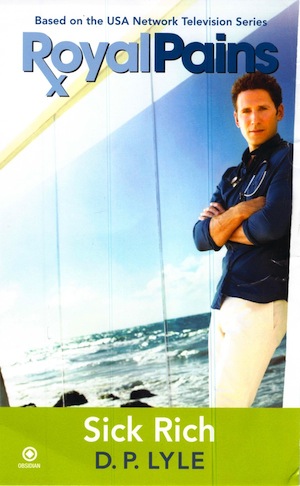Psychopath, sociopath, borderline personality disorder, choose your terminology but it is often felt that these coldhearted individuals are driven more by a lack of empathy and concern than anything else. They are often self-centered narcissist who want what they want, when they want it, and to hell with everyone else. They are often impulsive, callous, and completely unafraid of consequences.
They are portrayed in movies by such characters as Hannibal Lecter, who move through life taking what they want and caring little about others. In Hannibal’s case there is the possible exception of Clarice Starling, who I think he had a thing for. So he wasn’t completely socially un-redeemable and did have at least this one saving grace, as good literary villains should. Hannibal could be charming and gracious when it served his purposes and I suspect he would make a great dinner companion, unless you’re on the menu.
Previous research into psychopathy has suggested that psychopaths showed less activity in the areas of the brain involved in emotional responses and therefore they were considered to be less emotional and more impulsive. It was also known that psychopaths tend to abuse drugs and alcohol more frequently than the general population and that the abuse of these drugs stimulates certain areas of the brain, particularly the nucleus accumbens, an area that seems to be important in reward processing and drug addiction.
New research now suggests that there might be another driving force behind psychopathic behavior. Rather than being devoid of feelings it just might turn out that they are seeking a chemical high. Joshua Buckholtz, a Neuroscientist at Vanderbilt University in Nashville, Tennessee, has conducted an interesting study in which he examined brain dopamine levels in persons with sociopathic tendencies. He gathered 30 volunteers who scored toward the sociopathic end of the spectrum in personality testing. He avoided complete sociopaths since they often abused drugs and this could have altered his study, which employed an amphetamine-like drug that attached to dopamine producing neurons. The drug was radioactively labeled so that the amount that attached to certain areas of the test subjects’ brains could be analyzed.
What he found was that those that scored the highest for antisocial impulsivity produced more dopamine than did those who scored lower for the straight. Dopamine is considered a reward chemical in that things that give us pleasure tend to increase the amount of dopamine within certain areas of the brain. It seems that dopamine similarly served as a “reward chemical” in these individuals, suggesting that those with sociopathic tendencies are rewarded for their abnormal behavior by having high levels of dopamine within the brain.
So rather than being completely devoid of emotion and feeling, it might be that some sociopaths are driven by a chemical need. I am reminded of the wonderful Michael Crichton book and movie The Terminal Man.
In this story, Harry Benson was afflicted with temporal lobe epilepsy, also called psychomotor epilepsy. This is seizure activity that occurs in the area of the temporal lobe, amygdala, and limbic system, areas that are associated with emotion and sometimes violent behavior and personality disorders. Harry indeed was bothered by this and had violent outburst. To prevent his violent behavior, a brain pacemaker was placed so that when it sensed the onset of a seizure fired a small electrical impulse that shut down the seizure.
Unfortunately, Harry’s brain started to like the electrical jolt and therefore learned to create more of these temporal lobe seizures in order to receive the reward. It became a vicious circle. A great book and a very good movie so if you haven’t read the book or seen the movie do so.
All this raises the question as to whether psychopaths are following the same path. Maybe their antisocial behavior leads to a chemical reward and in turn the reward stimulates more antisocial behavior. The cat keeps chasing his tail. It’ll be interesting to see how future research in this area turns out.
Regardless of where future research takes us, this is good stuff for fiction.




























Rebecca R Butler
March 15, 2010 at 6:33 pm
I heard a piece/interview today on NPR, something new to me called Radio Lab with Krolwich. The relevant part featured a woman who had been given a drug to control Parkinsons. This drug enlivened her dopamine receptors and soon she developed an uncontrollable need to gamble. The gambling, which was an effort on her brain’s part to find patterns in random events (slot machines et alia), was stopped only when doctors, long after she went through $300,000 and her husband divorced her, took her off the treatment for Parkinson’s.
Spooky.
RB
LikeLike
James Reuther MD
March 17, 2010 at 3:12 pm
Dopamine agonists such as Mirapex (pramipexole) and Requip (ropinirole) are prescribed to treat Parkinson’s Disease, but also are commonly used to treat Restless Leg Syndrome. They are associated with a number of side effects, including addictive behaviors (shopping addiction, gambling addiction, sexual addictions). Although uncommon, it can cause a number of problems for people, especially if the pathological behaviors aren’t caught early.
LikeLike
D.P. Lyle, MD
March 17, 2010 at 3:18 pm
True. Thanks for your input. All these so-called psychotropic drugs have a host of untoward effects. DPL
LikeLike
Kristin Hovey
April 5, 2011 at 6:06 am
I am just very confused about these Diagnoses. My husband was diagnosed with Left Temporal Lobe Epilepsy 10 yrs. ago and is going to a Federal Prison Camp for postal fraud changing postage forms for 6 yrs. while they were watching him do this he could not stop, other weird business things that cross the line. He does not do violent crimes but seems to dismiss the rules and small laws-He was diagnosed with Antisocial Personality Disorder last year, but we are awaiting sentencing for the postal fraud-felony…Help I feel these 2 diagnoses are connected, but I need more Data/info. I am an ER nurse and this is killing me with unanswered questions.HELP!
LikeLike